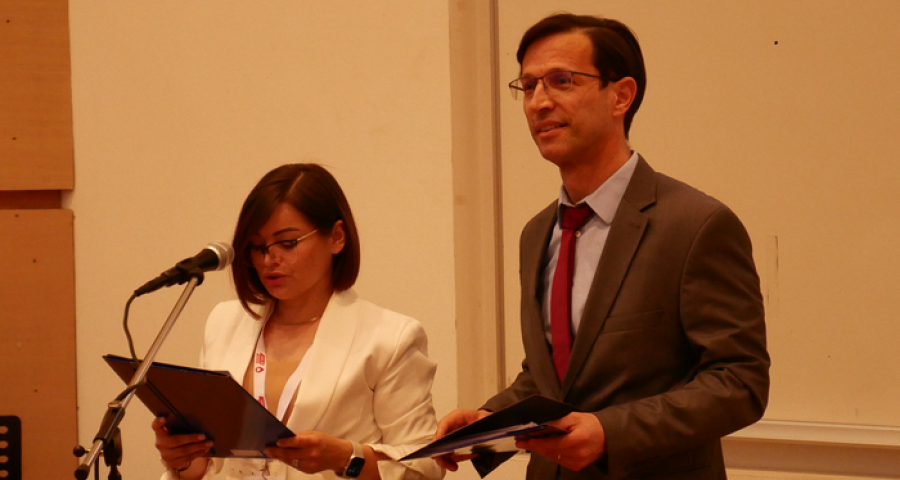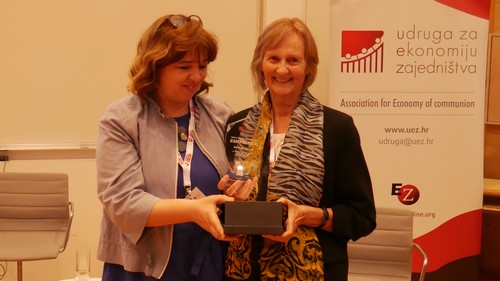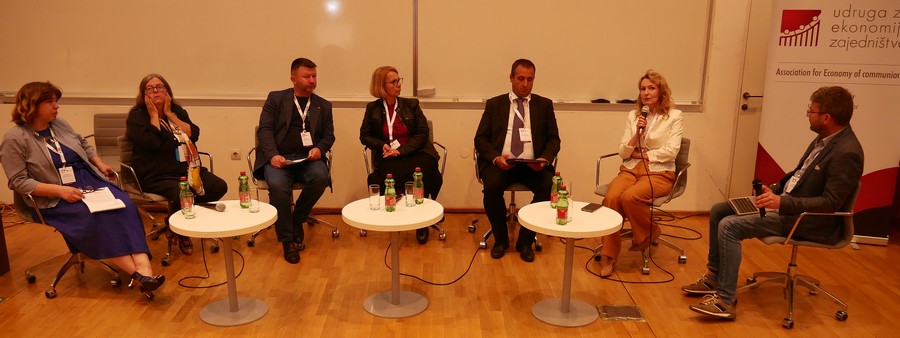In the congress hall of the Faculty of Economics in Zagreb an international conference was held on 10 May by the title:
Economy of Communion. To build a better world
Opened by the Vice Dean of the Faculty of Economics, Professor Martina Dumančić the afternoon conference was promoted by the Croatian Association for an Economy of Communion (UEZ) in cooperation with the University of Zagreb Faculty of Economy and Business (EFZG) and brought together over 170 participants. The aim of the event was to encourage and inspire participants through the example of leaders, scholars and entrepreneurs of the Economy of Communion.
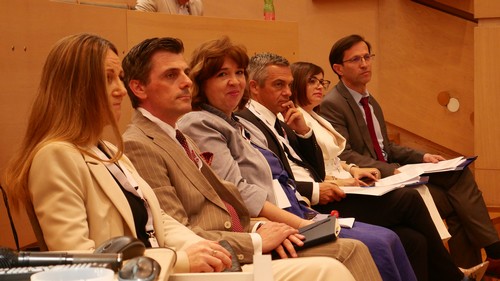
‘... Today, and all over the world we focus on environmental and social sustainability, we focus on inequalities, but we forget another important factor, that of spiritual sustainability. Today, after the crisis of religions, the crisis of ideologies, we need a new spiritual capital, to find a reason, a purpose to get up in the morning every day and go to work, we need a horizon, a meaningful context that goes beyond work itself. The Economy of Communion makes its contribution to building a new spiritual capital, a new spirituality in business, a true spirituality, which comes from a charisma and is not some kind of trickery, it is a serious thing. The Economy of Communion can contribute to environmental sustainability, to social sustainability, but also to spiritual sustainability.’
In the three panels that followed and during the accompanying discussions experts from the world of work, scholars, entrepreneurs and activists explored new trends and perspectives in the field of the Economy of Communion and identified concrete steps to apply these principles in their organisations and communities.
Relational goods: the basis for prosperity
In the first panel, Prof Domagoj Sajter presented the concept of relational goods as a key economic resource - ‘as a superstructure of contacts in value, and the type of value that the economy knows. Relational goods, such as trust, cooperation and solidarity, are the basis of any successful society,’ Sajter said, emphasising that these goods, although intangible, have a huge impact on the productivity and innovation of organisations. His presentation included concrete examples of how relational goods can be integrated into business models.
Those who participated in the discussion shared their experiences and insights on how relational goods influence their organisations and communities. 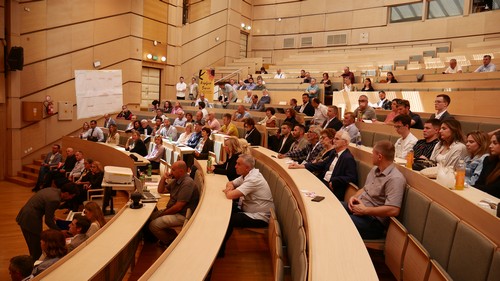
The panel's conclusions: if relational assets were recognised as “values”, classified as non-material goods and recognised as an important source of value generation for the largest and most successful companies, this would have a significant impact on approaches to the management, valuation and protection of such goods in the modern business environment.
Servant leadership: a new paradigm
The second panel was dedicated to servant leadership, a concept deeply rooted in the economy of communion. Prof. Domagoj Hruška, professor at EF and entrepreneur in the field of food production, spoke about the importance of authenticity, togetherness and solidarity in leadership. ‘True leaders are not those who dominate, but those who serve,’ said Hruška, emphasising the need to transform the way we understand leadership. He presented service-based leadership models that focus on community and individual well-being, rather than power and profit. Hruška also emphasised that servant leadership can improve the organisational culture by encouraging greater involvement and inducing employee loyalty.
The idea that leadership stems from concern felt for the welfare of others, and not just one's own benefit, was already emphasised by Oriental thinkers such as Confucius and Chanakya. Our cultural milieu is familiar with the Gospel accounts and the image of the Last Supper, where Jesus overturns traditional values of power and authority and emphasises his own example as a model of leadership through service. As a leader, he assumes the role of servant among his disciples, demonstrating the value of service and humility as an appropriate way to bring about change in others.
The speakers shared their stories about implementing servant leadership in their organisations: Marina Jakus, manager of Metus spoke about the importance of empathy and active listening, Matija Kopić, founder of Gideon, a successful robotics and artificial intelligence company, provided inspiring examples from business practice. Dr. sc. Kristijan Cinotti of CHROMA, Manager of the Year for Positive Social Impact, pointed out that Mazars Adria has integrated the principles of service into its business strategies, which has led to a significant social impact, while Prof., PhD Mirko Planinić, Dean of the Faculty of Science and Mathematics, scientist and physicist shared his experiences from the academic world.
The conclusion came by itself: Why is the traditional leadership model dominant in literature and practice? The thesis that can be made is that to engage in servant leadership we must have something that we want to achieve, something that is greater than ourselves. We must have a purpose that transcends our ego, one that is difficult to achieve and requires sacrifice. And all this requires that spiritual capital that Luigino Bruni mentioned in the introductory video.
During the break a wonderful community was created and there were lively discussions... with pastries, pizzas, coffee, fruit juice.... donated by numerous companies. Musical performances by the Francroatia Ensemble also enriched the programme.
Concrete steps - impact measures
In the third and final panel, Stanislav Lencz presented ‘7 measures of influence towards the Economy of Communion’, providing concrete guidelines on how individuals and organisations can contribute to the creation of a more just society. ‘Change starts with ourselves,’ Lencz said, encouraging participants to act locally but think globally. Measures include strengthening local economies, encouraging socially responsible investments, promoting transparency in business management and supporting educational initiatives that encourage the community.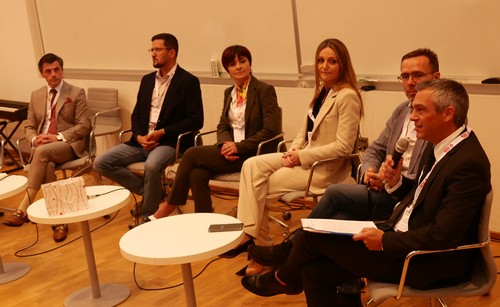
Lencz emphasised that any organisation, regardless of its size, can implement these measures and thus contribute to the global movement for a fairer economy.
An in-depth discussion followed on how to implement impact measures in different sectors. Nikolina Balen emphasised the importance of humanitarian projects for community building. Mislav Lukša and Jasminka Iličić shared their experiences in the agricultural sector, while Anto Bilić spoke about lifelong learning as a tool to foster community. Lucie Evers and Prof. Ivana Marić provided valuable insights from the perspective of social entrepreneurship and that of the academic community.
The conference ended with an heartfelt thank you to all participants and donors who supported the humanitarian action for Petrinja and Glina, as well as to the people in the Republic of Croatia who contribute to the Economy of Communion.
The concluding message of the conference that gave participants motivation for action was clear: change is possible and it starts with each individual because ‘We can all be agents of change’.
Go to photogallery

